Billionaires: who are the 10 richest people in the world?
Elon Musk retains the top spot, as tech billionaires enjoy 'Trump bump'
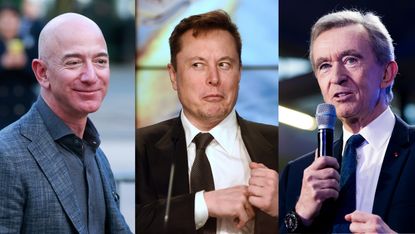
The wealth of the world's 10 richest people increased by a record amount in the wake of Donald Trump's US presidential election victory, Bloomberg's rich list has revealed.
Bloomberg Billionaires Index, updated every day, estimated that the wealthiest 10 gained nearly $64 billion (£49.5 billion) in the 24 hours following this month's US election, the largest daily increase since the index began in 2012.
Much of the gain for the top 10, who are almost entirely made up of US-based tech entrepreneurs, was because of a surge in US stocks "as investors anticipated a low-tax and regulation-light policy platform" under Trump and the Republicans, said The Guardian.
Subscribe to The Week
Escape your echo chamber. Get the facts behind the news, plus analysis from multiple perspectives.

Sign up for The Week's Free Newsletters
From our morning news briefing to a weekly Good News Newsletter, get the best of The Week delivered directly to your inbox.
From our morning news briefing to a weekly Good News Newsletter, get the best of The Week delivered directly to your inbox.
The title "richest person in the world" changes hands quite often among a very small group of very rich men – and they are nearly always men. The first woman to appear on the list is Alice Walton, heiress to the Walmart fortune, who comes in at 16th place with an estimated net worth of $104 billion.
Here we look at the top 10 richest billionaires in the world right now and where they rank according to the Bloomberg index.
1. Elon Musk: $313 billion
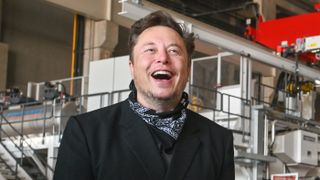
Elon Musk is known as the eccentric and outspoken chief executive of electric car giant Tesla, founder and CEO of SpaceX, owner of social media platform X, formerly Twitter, and prominent backer of Donald Trump.
His vast wealth derives from his 13% stake in Tesla and shares in SpaceX, which has seen a string of successes in the last year, said Forbes.
At the start of the year Tesla stock dropped nearly 30%, with the firm "beset by a variety of woes, including lots of recalls and stiffer competition in the electric vehicle market", said Quartz, but it has rallied in the second half of the year, and soared by 39% in the first four trading days after the election, lifting the company's market cap well past $1 trillion.
The good times look set to continue for Musk, with his new role as efficiency tsar in the new Trump administration putting him in prime position to "reduce regulatory authority so that he can eliminate impediments to his sprawling business empire", said CNBC.
Even before the election, CNN reported that the Tesla and X boss was on course to become the world's first trillionaire by 2027 – a landmark that could now be reached much sooner.
2. Jeff Bezos: $224 billion
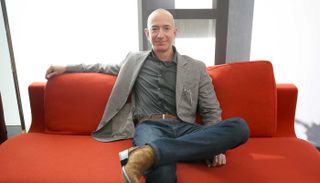
Former hedge fund manager Jeff Bezos started Amazon in his garage in 1994, growing it into one of the most profitable companies in the world. He has invested heavily in space technology too, having founded Blue Origin as a "pet project" back in 2000. After stepping down as Amazon CEO he took on the new role of executive chair.
The newspaper he owns, The Washington Post, suffered mass cancellations of subscriptions after it refused to endorse a presidential candidate for the first time in decades. Nonetheless, Bezos has added $7 billion to his fortune since Trump won the election earlier this month as Amazon stock surged.
3. Larry Ellison: $197 billion
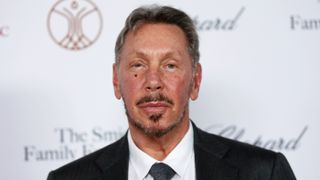
American business magnate Larry Ellison is co-founder, chairman and chief technology officer of Oracle, which he started in 1977. He stepped down as CEO in 2017 but still owns around 35% of the software giant.
A close friend of Musk and a former Tesla board member, Ellison is a longtime Republican donor who's seen his own "Trump bump", said CNBC, with Oracle's 10% increase lifting his net worth by about $20 billion.
The 80-year-old is known as America's "most avid trophy-home buyer", and now owns a property portfolio worth well over $1 billion, reported the South China Morning Post.
4. Mark Zuckerberg: $196 billion
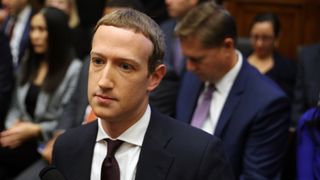
Mark Zuckerberg famously dropped out of Harvard to pursue his dream of starting social media site Facebook, which now boasts nearly three billion users worldwide. He remains CEO of Meta, the parent company of Facebook, Instagram, Threads and WhatsApp, with a 13% stake. Having dropped out of the top 10, Zuckerberg made a dramatic return to Bloomberg's list last year, driven by a 150% rise in Meta's stock price, making it "one of the best-performing technology stocks of 2023", said The Times. Its strong performance has continued this year, fuelled by "effective cost management and AI investments" which "look to be bearing fruit in boosting user engagement on its platforms", said CityBiz.
5. Bernard Arnault: $166 billion

When it comes to "the world of luxury goods", perhaps no one is "more successful" than Bernard Arnault, said Business Insider. The Frenchman oversees the LVMH Moët Hennessy Louis Vuitton empire of more than 70 brands, including Louis Vuitton, Moët & Chandon, TAG Heuer, Christian Dior and Dom Pérignon. While his net worth is less prone to the whims of the markets, not being based on technology stock, he has been hit by the fall in demand for luxury goods, especially wines and spirits. "Maybe the current global situation, be it geopolitical or macroeconomic, doesn’t lead people to cheer up and open bottles of champagne," said LVMH CFO Jean-Jacques Guiony, in Fortune.
6. Bill Gates: $160 billion
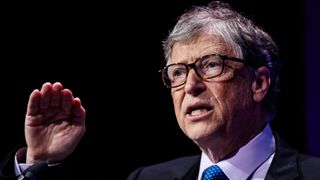
Microsoft founder Bill Gates has been a permanent fixture near the top of the rich list for the best part of three decades, despite selling and then giving away much of his stake in the tech company. He now owns just 1% and focuses predominantly on his philanthropic work. Gates has already given away an "astounding $59 billion" through his charity, the Bill & Melinda Gates Foundation, which advances education and public health initiatives around the globe, and he has vowed to donate as much as 99.96% of his wealth in total, said financial news site The Street.
7. Larry Page: $155 billion
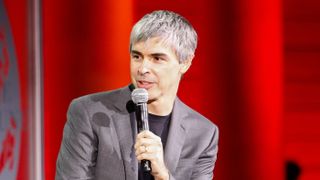
Internet entrepreneur Larry Page is one of the co-founders of Google, which he started while a PhD student at Stanford in 1998. He stepped down as CEO of Google's parent company Alphabet Inc in December 2019 but remains a board member. Last year, Page and his fellow Google co-founder Sergey Brin, "who've been helping with the AI push and are more involved in the company than they've been in years", added more than $18 billion to their combined wealth as a direct result of the artificial intelligence "frenzy" sweeping Silicon Valley, said Fortune.
8. Warren Buffett: $148 billion
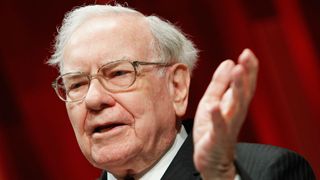
Warren Buffett was 11 years old when he first bought stock, according to Forbes. Now in his ninth decade, the Berkshire Hathaway chief executive, known as the "Oracle of Omaha", is one of the most successful investors of all time. Like Gates, Buffett has pledged to give away more than 99% of his fortune to charity.
10. Sergey Brin: $146 billion
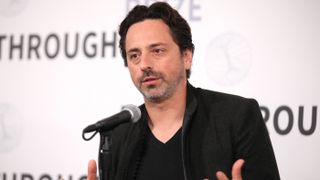
Born in Moscow to Jewish parents, Sergey Brin and his family left for the US when he was six, due to antisemitism. Co-founding Google with his Stanford classmate Larry Page, Brin served as head of technology from 2001 to 2011 before transitioning to the role of "director of special projects", helping transform the company into an "internet powerhouse", said Outlook India. He was president of Alphabet Inc until December 2019 and "remains a board member and a controlling shareholder", said Forbes.
10. Steve Ballmer: $144 billion
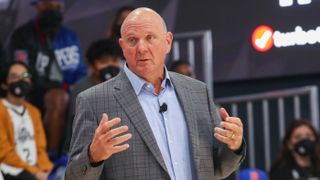
Former CEO of Microsoft Steve Ballmer led the tech giant from 2000 to 2014, after joining as one of its first employees in 1980. By the time he stepped down a decade ago he was believed to have around a 4% stake in the company, which would see him collect an annual dividend "just shy of $1 billion", said CNN. It comes after Microsoft joined Apple in becoming a $3 trillion company this year. Ballmer is the current owner of the Los Angeles Clippers basketball team.
Sign up for Today's Best Articles in your inbox
A free daily email with the biggest news stories of the day – and the best features from TheWeek.com
-
 What will Trump's mass deportations look like?
What will Trump's mass deportations look like?Today's Big Question And will the public go along?
By Joel Mathis, The Week US Published
-
 'Drug epidemics are often cyclical'
'Drug epidemics are often cyclical'Instant Opinion Opinion, comment and editorials of the day
By Justin Klawans, The Week US Published
-
 Today's political cartoons - December 2, 2024
Today's political cartoons - December 2, 2024Cartoons Monday's cartoons - good boy, shortcut to the landfill, and more
By The Week US Published
-
 What's next for electric vehicles under Trump?
What's next for electric vehicles under Trump?Today's Big Question And what does that mean for Tesla's Elon Musk?
By Joel Mathis, The Week US Published
-
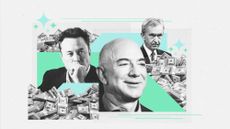 The rise of the world's first trillionaire
The rise of the world's first trillionairein depth When will it happen, and who will it be?
By Justin Klawans, The Week US Last updated
-
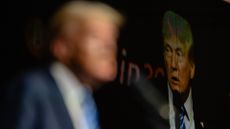 Donald Trump's bitcoin obsession
Donald Trump's bitcoin obsessionThe Explainer Former president's crypto conversion a 'classic Trumpian transactional relationship', partly driven by ego-boosting NFTs
By The Week UK Published
-
 Is Tesla finally in real financial trouble?
Is Tesla finally in real financial trouble?Talking Points Elon Musk's once-dominant electric vehicle company is facing falling profits and unfulfilled promises of future advances
By Rafi Schwartz, The Week US Published
-
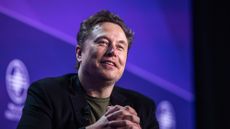 Tesla investors back Musk's $48B payday
Tesla investors back Musk's $48B paydaySpeed Read The company's shareholders approved a controversial compensation package for CEO Elon Musk
By Peter Weber, The Week US Published
-
 Elon Musk's future at Tesla may hang in the (very expensive) balance
Elon Musk's future at Tesla may hang in the (very expensive) balanceTalking Points The iconic electric vehicle's board must convince shareholders it's worth awarding their tech titan CEO a $50 billion pay compensation package — or he might walk
By Rafi Schwartz, The Week US Published
-
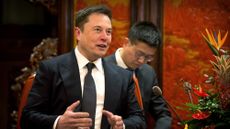 Musk clears Tesla self-driving hurdle in China
Musk clears Tesla self-driving hurdle in ChinaSpeed Read The Tesla CEO won China's approval to introduce Full Self-Driving (FSD) cars
By Peter Weber, The Week US Published
-
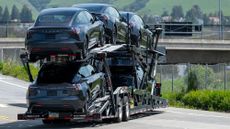 Why is Tesla stumbling?
Why is Tesla stumbling?In the Spotlight More competition, confusion about the future and a giant pay package for Elon Musk
By Joel Mathis, The Week US Published